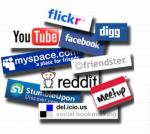 The world has developed a love-hate relationship with WikiLeaks and Julian Assange. Some are praising WikiLeaks for using the internet to champion freedom of information and expose the lies and deceptions of government. Conversely, self-described entertainers like Glen Beck assert that Assange is “a dangerous man” who “believes in global chaos and bringing down the system.” Others have accused Wikileaks of selling secrets for commercial gain.
The world has developed a love-hate relationship with WikiLeaks and Julian Assange. Some are praising WikiLeaks for using the internet to champion freedom of information and expose the lies and deceptions of government. Conversely, self-described entertainers like Glen Beck assert that Assange is “a dangerous man” who “believes in global chaos and bringing down the system.” Others have accused Wikileaks of selling secrets for commercial gain.
A range of US political figures have called for criminal prosecution of Assange. Potential Republican presidential candidate, Mike Huckabee, said the person who leaked the information to Assange should be tried for treason and executed. Sarah Palin says WikiLeaks should be hunted with the “same urgency we pursue al Qaeda and Taliban leaders.” Some extremists have called for the assassination of Assange. Others like Michigan’s Representative have criticized WikiLeaks while demonstrating their ignorance of technology and international law.
Conservative commentator William Kristol questions
“Why can’t we use our various assets to harass, snatch or neutralize Julian Assange and his collaborators, wherever they are? Why can’t we disrupt and destroy WikiLeaks in both cyberspace and physical space, to the extent possible? Why can’t we warn others of repercussions from assisting this criminal enterprise hostile to the United States?”
All this furor is happening because government officials and corporations are in a dither about the current release of classified US diplomatic cables over the internet and the earlier release of military documents pertaining to the Iraq and Afghanistan wars. They fear exposure of secret and often embarrassing comments and past actions. Officials have cited potential risks to lives, but no proof has yet been provided to support that position. No charges related to the document releases have been filed against Julian Assange so far.

Mark Zuckerberg
There is an ironic familiarity with this controversy. Recall that the largest social media company in the US, Facebook, got its start through theft of government data. Mark Zuckerberg hacked private student records on the Harvard University computer network and compiled student photographs and names into an “online facebook”. So far, he’s had a fair amount of success in his career and has never been targeted for assassination by US officials. Despite being caught and sanctioned for his crime, Zuckerberg said “I thought that the information should be available.”
Obviously, he couldn’t have made the student data available without both the cajones to risk his reputation and skills with internet technology. There would be no online documents to reveal, no means of distribution, and no immediate and robust way to share the data with the world without the internet technology platform.

Daniel Ellsberg
History seems to be repeating itself in other ways too, but the issues are far more serious than the release of college Harvard student photographs. One might wonder if Julian Assange is the newest incarnation of the “most dangerous man in America?” Shades of the Pentagon Papers and Daniel Ellsberg! Those critical of WikiLeaks including Fox News first accused the organization of being a terrorist organization, then they went after its leader on unrelated sex charges, and now they are accusing WikiLeaks supporters of being enemy combatants at war with the United States.
I felt that as an American citizen, as a responsible citizen, I could no longer cooperate in concealing this information from the American public. I did this clearly at my own jeopardy and I am prepared to answer to all the consequences of this decision. ~ Daniel Ellsberg, 1971
Et tu, Julian?
Supporters of WikiLeaks seem to be falling into four camps:
- The Who Cares? camp.
- The Whisperers – a camp that dare not speak too loud for fear of being ostracized, fired or arrested.
- The We Want the Truth camp that demands government be far more transparent.
- The Warriors camp that is willing to fight back against perceived injustice.
The Warriors camp strongly identifies with Assange and WikiLeaks and is attacking the corporations alleged to be unfairly treating WikiLeaks and Julian Assange. So far, the growing list of targets includes Amazon, VISA Europe, MasterCard, PayPal, SarahPAC, Moneybookers (Skrill Holdings Ltd.), Swiss PostFinance, and others. Their members include an international network of web activists self-named Anonymous that are implementing Operation Payback. Their mantra: information wants to be free.
Hell hath no fury like a hacker scorned.
WikiLeaks certainly has friends in cyberspace and the international free speech community. The We Want the Truth camp members appear to be growing in number. Initially, 28,000+ Australians signed a letter to President Obama supporting WikiLeaks and Assange. The WikiLeaks Facebook page already has more than 1.2 million fans. In 2008 WikiLeaks received the Economist Index on Censorship Freedom of Expression Award and the 2009 Amnesty International human rights reporting award.
The number of international websites that mirror WikiLeaks content has soared to over 1885 and will likely increase. Despite the loss of its original website host, WikiLeaks is able operate from its modern, underground data/bomb shelter in Switzerland with just an IP address (213.251.145.96). The number can change should it also become blocked. It already uses more than a dozen name servers to guide web browsers to the correct site. This configuration significantly immunizes WikiLeaks data from becoming inaccessible. Completely stopping spread of WikiLeaks material is nearly impossible.
 This information war is the historic equivalent to trying to stop the distribution of the Bible after Gutenberg invented the printing press. Information, once released with the speed and complexity of the internet, is difficult to hide, but it does not prevent governments from prosecuting those they define as criminal.
This information war is the historic equivalent to trying to stop the distribution of the Bible after Gutenberg invented the printing press. Information, once released with the speed and complexity of the internet, is difficult to hide, but it does not prevent governments from prosecuting those they define as criminal.
 Spurred by both the success and dissention within the ranks of WikiLeaks plus the desire to operate under more democratic procedures, similar whistleblower organizations are forming. One or more groups using the name of OpenLeaks is expected to launch. One report says a new organization will not receive and publish information directly. Instead, organizations will allow the source to choose any media or non-governmental organizations he or she wants to receive the information for independent fact-checking, redaction and publication.
Spurred by both the success and dissention within the ranks of WikiLeaks plus the desire to operate under more democratic procedures, similar whistleblower organizations are forming. One or more groups using the name of OpenLeaks is expected to launch. One report says a new organization will not receive and publish information directly. Instead, organizations will allow the source to choose any media or non-governmental organizations he or she wants to receive the information for independent fact-checking, redaction and publication.
Everything you have said in the dark will be heard in the daylight” (Luke 12:2-3)
The ACLU and Electronic Frontier Foundation (EFF) are deeply skeptical that US prosecution of WikiLeaks will pass a constitutional test because Julianne Assange is not a US citizen. He is an Australian hacker turned journalist. The US might attempt prosecution by using or amending the Espionage Act of 1917, but they would need to prove Assange was either aware that the documents could harm US national security, or that he had a hand stealing them from the government. Assange claims to have contacted the US Ambassador in London, Louis Susman, seeking help to redact information that could put people at risk. The US government refused assistance. Instead Homeland Security and Governmental Affairs Committee Chairman Joe Lieberman, ID-Conn., and Ranking Member Susan Collins, R-Me., released the a statement on 12/9/10 in support of companies that have severed their business relationships with WikiLeaks. Australia’s Prime Minister, Julia Gillard, reportedly said the Australian government will offer him no support although the Australian consulate in the UK has offered him access to their services.
WikiLeaks has a history breaking major stories in major media outlets and robustly protecting sources and press freedoms. We have never revealed a source. We do not censor material. Since formation in 2007, WikiLeaks has been victorious over every legal (and illegal) attack, including those from the Pentagon, the Chinese Public Security Bureau, the Former president of Kenya, the Premier of Bermuda, Scientology, the Catholic & Mormon Church, the largest Swiss private bank, and Russian companies. WikiLeaks has released more classified intelligence documents than the rest of the world press combined. ~ WikiLeaks
Welcome to the new age of radical transparency and cyberwar.


 In my
In my 

